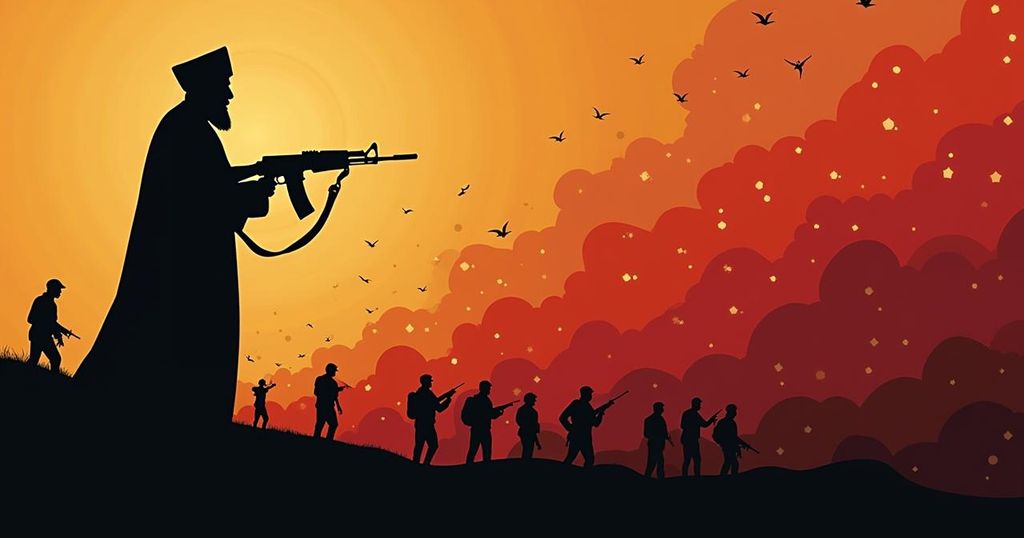The Assassination of Nasrallah: A New Chapter in the Middle Eastern Conflict
The death of Hassan Nasrallah, Hezbollah’s leader, following Israeli strikes, signals a significant escalation in Israel’s conflict with Iranian proxies. This could weaken Hezbollah and alter regional power dynamics. Iran has condemned the killing but has yet to retaliate, suggesting a cautious strategy in response to this loss.
The recent confirmation of Hassan Nasrallah’s death by Hezbollah on Saturday represents a significant escalation in Israel’s ongoing efforts against Iranian proxies in the Middle East. This event follows Israeli airstrikes that targeted what were reportedly Hezbollah’s underground command centers, resulting in the destruction of three residential buildings. Nasrallah’s demise marks a pivotal moment, potentially altering the dynamics of power in the region as one of Iran’s most crucial military allies has been severely impacted. Hezbollah has been instrumental as Iran’s frontline in its ongoing confrontation with Israel, alongside other proxies such as Hamas and the Houthis. The ramifications of Nasrallah’s death may diminish the immediate threat Israel perceives from Hezbollah, thereby increasing pressure on Tehran to consider its next moves. Despite vehement condemnation from Iranian officials regarding the attack, they have yet to take any tangible retaliatory measures against Israel, suggesting a reluctance to engage in direct conflict. This cautious approach raises questions about Iran’s strategic calculations following such a significant loss. Ayatollah Ali Khamenei, the Supreme Leader of Iran, expressed solidarity with Hezbollah by stating, “All the resistance forces in the region stand with and support Hezbollah.” As the situation develops, the reactions from both Iran and Hezbollah will be closely monitored to ascertain whether this critical event will lead to a further cycle of violence or create an opportunity for diplomatic engagements in the region.
The backdrop of this conflict involves longstanding tensions between Israel and Iran, with Iran employing various militant groups in the region as proxies to counter Israeli influence. Hezbollah, largely viewed as Iran’s most formidable ally, has been at the forefront of military engagements against Israel, making the leadership of Nasrallah crucial for Hezbollah’s operations. Israel’s campaign against Hezbollah has ramped up in recent times, focusing on its capabilities and infrastructure, leading to higher stakes in the region. The interplay between retaliatory actions and strategic restraint from Iran, particularly after the death of key militant leaders, reflects broader geopolitical considerations.
In summary, the killing of Hassan Nasrallah signifies a turning point in the Middle Eastern conflict, potentially altering the strategic landscape and reducing immediate threats to Israel from Hezbollah. Iran’s delayed response raises concerns about its future approach to regional stability and its reliance on proxy warfare. Observing how these developments unfold will be essential for understanding the implications for Iran, Hezbollah, and Israeli policy moving forward.
Original Source: www.nytimes.com




Post Comment